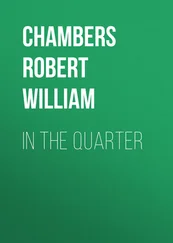Robert Chambers - The Maids of Paradise
Здесь есть возможность читать онлайн «Robert Chambers - The Maids of Paradise» — ознакомительный отрывок электронной книги совершенно бесплатно, а после прочтения отрывка купить полную версию. В некоторых случаях можно слушать аудио, скачать через торрент в формате fb2 и присутствует краткое содержание. Жанр: foreign_prose, на английском языке. Описание произведения, (предисловие) а так же отзывы посетителей доступны на портале библиотеки ЛибКат.
- Название:The Maids of Paradise
- Автор:
- Жанр:
- Год:неизвестен
- ISBN:нет данных
- Рейтинг книги:5 / 5. Голосов: 1
-
Избранное:Добавить в избранное
- Отзывы:
-
Ваша оценка:
- 100
- 1
- 2
- 3
- 4
- 5
The Maids of Paradise: краткое содержание, описание и аннотация
Предлагаем к чтению аннотацию, описание, краткое содержание или предисловие (зависит от того, что написал сам автор книги «The Maids of Paradise»). Если вы не нашли необходимую информацию о книге — напишите в комментариях, мы постараемся отыскать её.
The Maids of Paradise — читать онлайн ознакомительный отрывок
Ниже представлен текст книги, разбитый по страницам. Система сохранения места последней прочитанной страницы, позволяет с удобством читать онлайн бесплатно книгу «The Maids of Paradise», без необходимости каждый раз заново искать на чём Вы остановились. Поставьте закладку, и сможете в любой момент перейти на страницу, на которой закончили чтение.
Интервал:
Закладка:
She shook her head with a cool smile.
“I am quite safe under the escort of an officer of the Imperial – ”
“Wait!” I said, hastily, but she continued, “of the Imperial Military Police.”
Above all things I had not wanted it known that the Imperial Police were moving in this affair at La Trappe, and now this little fool had babbled to a strange priest – of all people in the world!
“What have the police to do with this harmless child?” demanded the priest, turning on me so suddenly that I involuntarily took a step backward.
“Is this the confessional, father?” I replied, sharply. “Go your way in peace, and leave to the police what alone concerns the police.”
“Render unto Cæsar,” said the girl, quietly. “Good-bye, father.”
Turning to look again at the priest, I was amazed to find him close to me, too close for a man with such eyes in his head, for a man who moved so swiftly and softly, and, in spite of me, a nervous movement of my hand left me with my fingers on the butt of my pistol.
“What the devil is all this?” I blurted out. “Stand aside, father. Do you think the Holy Inquisition is back in France? Stand aside then! I salute your cloth!”
And I passed on ahead, one hand on the horse’s neck, the other touching the visor of my scarlet forage-cap. Once I looked back. The priest was standing where I had passed him.
We met a dozen people in all, I think, some of them peasants, one or two of the better class – a country doctor and a notary among them. None appeared to know my turkey-girl, nor did she even glance at them; moreover, all answered my inquiries civilly enough, directing me to La Trappe, and professing ignorance as to its inhabitants.
“Why do all the people I meet carry bundles?” I demanded of the notary.
“Mon Dieu, monsieur, they are too near the frontier to take risks,” he replied, blinking through his silver-rimmed spectacles at my turkey-girl.
“You mean to say they are running away from their village of Trois-Feuilles?” I asked.
“Exactly,” he said. “War is a rude guest for poor folk.”
Disgusted with the cowardice of the hamlet of Trois-Feuilles, I passed on without noticing the man’s sneer. In a moment, however, he repassed me swiftly, going in the same direction as were we, toward La Trappe.
“Wait a bit!” I called out. “What is your business in that direction, monsieur the notary?”
He looked around, muttered indistinctly about having forgotten something, and started on ahead of us, but at a sharp “Stop!” from me he halted quickly enough.
“Your road lies the other way,” I observed, and, as he began to protest, I cut him short.
“You change your direction too quickly to suit me,” I said. “Come, my friend the weather-cock, turn your nose east and follow it or I may ask you some questions that might frighten you.”
And so I left him also staring after us, and I had half a mind to go back and examine his portfolio to see what a snipe-faced notary might be carrying about with him.
When I looked up at my turkey-girl, she was sitting more easily in the saddle, head bent thoughtfully.
“You see, mademoiselle, I take no chances of not finding my friends at home,” I said.
“What friends, monsieur?”
“My friends at La Trappe.”
“Oh! And … you think that the notary we passed might have desired to prepare them for your visit, monsieur?”
“Possibly. The notary of Trois-Feuilles and the Château de la Trappe may not be unknown to each other. Perhaps even mademoiselle the turkey-girl may number the learned Trappists among her friends.”
“Perhaps,” she said.
Walking on along the muddy road beside her, arm resting on my horse’s neck, I thought over again of the chances of catching Buckhurst, and they seemed slim, especially as after my visit the house at La Trappe would be vacant and the colony scattered, or at least out of French jurisdiction, and probably settled across the Belgian frontier.
Of course, if the government ordered the expulsion of these people, the people must go; but I for one found the order a foolish one, because it removed a bait that might attract Buckhurst back where we stood a chance of trapping him.
But in a foreign country he could visit his friends freely, and whatever movement he might ultimately contemplate against the French government could easily be directed from that paradise of anarchists, Belgium, without the necessity of his exposing himself to any considerable danger.
I was sorry that affairs had taken this turn.
A little breeze began blowing; the scarlet skirt of my turkey-girl fluttered above her wooden shoes, and on her head the silk bow quivered like a butterfly on a golden blossom.
“They say when the Lord fashioned the first maid of Alsace half the angels cried themselves ill with jealousy,” said I, looking up at her.
“And the other half, monsieur?”
“The sterner half started for Alsace in a body. They were controlled with difficulty, mademoiselle. That is why St. Peter was given a key to lock them in, not to lock us poor devils out.”
After a silence she said, musing: “It is a curious thing, but you speak as though you had seen better days.”
“No,” I said, “I have never seen better days. I am slowly rising in the world. Last year I was a lieutenant; I am now inspector.”
“I meant,” she said, scornfully, “that you had been well-born – a gentleman.”
“Are gentlemen scarce in the Imperial Military Police?”
“It is not a profession that honors a man.”
“Of all people in the world,” said I, “the police would be the most gratified to believe that this violent world needs no police.”
“Monsieur, there is another remedy for violence.”
“And what may that remedy be, mademoiselle?”
“Non-resistance – absolute non-resistance,” said the girl, earnestly, bending her pretty head toward me.
“That is not human nature,” I said, laughing.
“Is the justification of human nature our aim in this world?”
“Nor is it possible for mankind to submit to violence,” I added.
“I believe otherwise,” she said, gravely.
As we mounted the hill along a sandy road, bordered with pines and with cool, green thickets of broom and gorse, I looked up at her and said: “In spite of your theories, mademoiselle, you yourself refused to accompany me.”
“But I did not resist your violence,” she replied, smiling.
After a moment’s silence I said: “For a disciple of a stern and colorless creed, you are very human. I am sorry that you believe it necessary to reform the world.”
She said, thoughtfully: “There is nothing joyless in my creed – above all, nothing stern. If it be fanaticism to desire for all the world that liberty of thought and speech and deed which I, for one, have assumed, then I am, perhaps, a fanatic. If it be fanaticism to detest violence and to deplore all resistance to violence, I am a very guilty woman, monsieur, and deserve ill of the Emperor’s Military Police.”
This she said with that faintly ironical smile hovering sometimes in her eyes, sometimes on her lips, so that it was hard to face her and feel quite comfortable.
I began, finally, an elaborate and logical argument, forgetting that women reason only with their hearts, and she listened courteously. To meet her eyes when I was speaking interrupted my train of thought, and often I was constrained to look out across the hills at the heavy, solid flanks of the mountains, which seemed to steady my logic and bring rebellious thought and wandering wisdom to obedience.
I explained my theory of the acceptance of three things – human nature, the past, and the present. Given these, the solution of future problems must be a different solution from that which she proposed.
Читать дальшеИнтервал:
Закладка:
Похожие книги на «The Maids of Paradise»
Представляем Вашему вниманию похожие книги на «The Maids of Paradise» списком для выбора. Мы отобрали схожую по названию и смыслу литературу в надежде предоставить читателям больше вариантов отыскать новые, интересные, ещё непрочитанные произведения.
Обсуждение, отзывы о книге «The Maids of Paradise» и просто собственные мнения читателей. Оставьте ваши комментарии, напишите, что Вы думаете о произведении, его смысле или главных героях. Укажите что конкретно понравилось, а что нет, и почему Вы так считаете.












